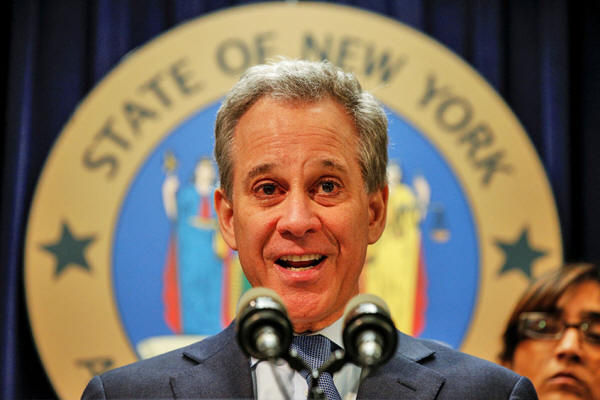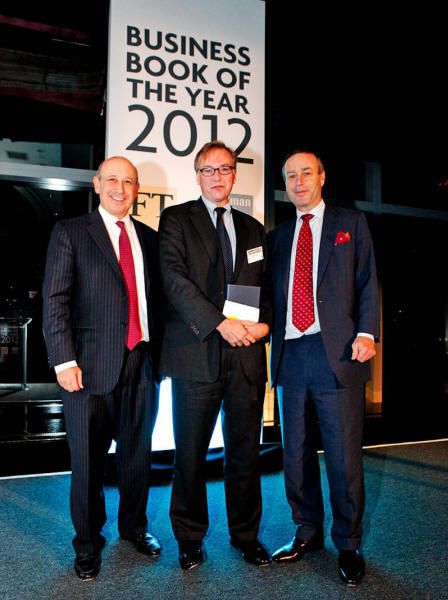|

by The Energy &
Environmental Legal Institute
May 28,
2019
from
GlobalResearch Website

New York City, Rockefeller Center,
Christmas, Angels, Trumpets
CGP
Grey (CC BY 2.0)
"Beginning in the 1980s, the Rockefeller Brothers Fund
became leading advocates of the global warming agenda…
In their
Sustainable Development Program Review, the Rockefeller
Brothers Fund boasts of being one of the first major global
warming activists, citing its strong advocacy for both the
1988 formation of the U.N. Intergovernmental Panel on
Climate Change (IPCC) and the 1992 establishment of the U.N.
Framework Convention on Climate Change."
(excerpt from Report)
The following text is
the Executive Summary of a
full length report by The
Energy & Environmental Legal Institute published in 2016.
This informative report is brought to the attention of Global
Research readers. The CRG does not necessarily endorse the title
nor the contents of this report.
What is important, however, is to acknowledge the role of
the Rockefeller family - which
historically was the architect of "Big Oil" - in
supporting the
Climate Change debate as well
as the funding of scientists, environmentalists and NGOs
involved in grassroots activism against "Big
Oil" and the fossil fuel industry.
Debate on the world's climate is of crucial importance. But who
controls that debate?
There is an obvious contradictory relationship:
Whereas "Big Oil"
is the target of
Global Warming activism,
"Big Oil" through the Rockefeller Family and Rockefeller
Brothers Trusts generously finance the Worldwide climate
protest movement.
Ask yourself: Why...?
Michel Chossudovsky
Global Research
May
2019
Read full report by The Energy & Environmental Legal
Institute (1 December 2016): "The
Rockefeller Way - The Family's Covert 'Climate Change' Plan."
***
The Rockefellers are
arguably the wealthiest and most powerful family in the history of
the United States.
For more than 100 years,
they have shaped and directed America's economic, financial,
political, and public policy while simultaneously amassing one of
the largest family empires in the modern era.
Most Americans hold the billionaire philanthropists in high esteem,
associating the Rockefeller name with "oil" and "capitalism."
In reality, the
Rockefellers are intent on controlling nearly every major
institution in America, using philanthropy as a means of increasing
their influence on the world stage under the guise of advancing
various social causes.
Their avid opposition to
the very fossil fuel industry that made John D. Rockefeller
America's first billionaire shows that the Rockefellers are not
political ideologues.
Instead, they are mere
opportunists who support political agendas convenient to
enhancing their leverage in the global arena.
Through the Rockefellers' web of,
...they have gained
unprecedented influence in,
-
healthcare
-
pharmaceuticals
-
agriculture
-
energy
-
the environment
Their highly complex
integration of,
...has steered public
policy on these issues and provided them with foreknowledge of
emerging markets and access to the developing worlds' natural
resources.
Since the beginning of their philanthropic endeavors, the
Rockefellers have used social causes to amass influence in policy
areas of their choosing.
Since the 1980s, their
cause of choice has been the climate change agenda
(originally called
global warming).
Their crusade to collapse
the fossil fuel industry in favor of renewable energy in
well-documented, from their involvement in major global climate
treaties and organizations - the U.N. Intergovernmental Panel on
Climate Change (IPCC)
in 1992 to the 1997
Kyoto Protocol - to spending
hundreds of millions to advance the renewable energy industry.
Through their
Sustainable Development Program, the Rockefellers continue to
promote their self-serving "clean energy" policies throughout both
the federal government and general public.
As the most prolific benefactors of the climate activist movement,
the Rockefellers' impact on the energy industry sees no bounds, as
the family's objectives permeate throughout federal and state energy
policy, as well as international social engineering globalist
compacts such as
Agenda 21.
With the immeasurable
influence that accompanies mass wealth and power, the Rockefeller
empire has proven an effective puppeteer of advancing its main
objective:
the destruction of
the fossil fuel industry to increase its clout over the energy
sector.

Eric Schneiderman
On November 5, 2015, New York Attorney General
Eric Schneiderman launched an
unprecedented investigation into
ExxonMobil to determine if the
company had defrauded investors by not disclosing the risks that
climate change could have on its business. 1
This occurred only weeks
after the Columbia Journalism School's (CJS) Energy and
Environment Reporting Fellowship accused Exxon of misleading the
public through its Los Angeles Times article, "How Exxon went
from leader to skeptic on climate change." 2
Despite the raging debate over the impact of man-made climate
change, left-leaning politicians, lobbyists, and most significantly,
billionaires, have declared it settled science, using the issue as a
means of gaining control over the energy arena.
Research shows that Eric
Schneiderman's legal investigation, as well as Columbia Journalism's
negative portrayal of ExxonMobil were neither objective nor
independent.
In fact, substantial
evidence leads to the premise that both Columbia Journalism School's
accusations against ExxonMobil and Eric Schneiderman's legal
investigation into the oil giant were not only financed, but
orchestrated by the Rockefeller family.
Notably, the Rockefellers bankrolled the Columbia Journalism
School's Energy and Environmental Reporting Fellowship Project's
demonization of the oil company. 3
However, both
Schneiderman's investigation and Columbia Journalism School's
publications were years in the making.
The Rockefeller Family Fund hosted and led two closed door meetings
with prominent climate activists - one in 2012 and one in January
2016. Uncovered emails show that the main issue at both gatherings
was how to best take down the fossil fuel industry. 4
Aside from key leaders of
the Rockefellers' many foundations, both summits included the major
players in the climate movement such as:
-
Matt Pawa
(attorney at the Center for International Environmental Law)
-
Sharon Eubanks
(director of the Department of Justice's tobacco litigation
effort in the 1990's and known anti Exxon activist)
-
representatives
of Greenpeace
-
Carroll Moffit of
the Climate Accountability Institute. 5
During both summits, Eric
Schneiderman was considered the possible catalyst to spearhead the
legal investigation, while ExxonMobil was repeatedly mentioned as
the possible target.
Schneiderman's fervent outspokenness against "climate deniers," and
public call to enact policies conducive to increasing renewable
energy use made him a perfect and willing candidate. 6
When announcing his
crusade against Exxon, Schneiderman cited studies from the
Rockefeller funded outlets Inside Climate News and
Columbia Journalism School's Exxon reports. 7
Revealingly, numerous
members of the Rockefeller family had long urged Schneiderman to
investigate the oil company.
However, as evidenced in the Rockefeller-hosted La Jolla 2012
meeting report, the family and climate activists needed a
well-known, respected, and objectively perceived media outlet to
push the public narrative.
#ExxonKnew Timeline - It All Goes Back to
La Jolla
June 14-15, 2012:
Rockefeller-funded organizations hold conference in La Jolla,
Calif., to brainstorm how they could use racketeering laws
against ExxonMobil.
The Union of
Concerned Scientists and the Climate Accountability Institute
organize
a conference for activists such
as Naomi Oreskes (author of Merchants of Doubt), Peter Frumhoff
of the Union of Concerned Scientists, and Matt Pawa, who served
on the board of the Climate Accountability Institute, to discuss
ways to link Big Tobacco to
ExxonMobil.
Although not disclosed in
the summit's documentation, it appears they found one in the
Columbia Journalism School.
While arguably the most
prestigious journalism school in the country, the Columbia
Journalism School is not only a beneficiary of millions in
Rockefeller donations, it is composed, almost entirely, of
professors closely affiliated with the green movement.

Steve Coll (center)
at Financial Times and Goldmans Sachs
Business Book of the Year Award 2012
In 2013, a year after the plan was crafted, climate alarmist and
author of a well-known book condemning ExxonMobil, Steve Coll,
was appointed Dean of the Columbia Journalism School.
Not surprisingly, Coll spearheaded the school's Energy and
Environmental Reporting Fellowship's project that smeared Exxon.
Coll is closely tied to
the Rockefellers, as he previously chaired the climate change
proponent
New America Foundation, which
received significant funding from the family.
These revelations suggest
that the Rockefellers used their influence over both the Columbia
Journalism School and Steve Coll, to put Coll in place as Dean,
providing him the platform to do what he had done voluntarily and
enthusiastically once before:
publically and
thoroughly castigate ExxonMobil.
Along with Coll, as a
bastion of climate activists, the Columbia Journalism
School (CJS) was likely an eager participant in the plot to
smear Exxon.
At least seven CJS
professors are directly connected to green activist billionaire
George Soros, receiving either awards or significant amounts of
money from the socialist philanthropist.
Moreover, several CJS
alumni board members are prominent climate change advocates,
including Scott Dodd, and Thomas Watkins.
This report proposes that the assault on ExxonMobil was neither the
idea of Eric Schneiderman, nor the Columbia Journalism School.
Instead, the
Rockefellers, with the help of other billionaires and prominent
climate activists, carefully orchestrated both the legal and media
investigations into ExxonMobil in an effort to achieve their goal of
collapsing the fossil fuel industry to gain control
over the energy sector...
Notes
-
Chris Mooney, "New
York is investigating Exxon Mobil for allegedly misleading
the public about climate change," The Washington
Post, Nov. 5, 2015
-
Katie Jennings,
Dino Grandoni and Susanne Rust, "How
Exxon Went from leader to skeptic on climate change,"
Los Angeles Times, Oct. 23, 2015
-
Susanne Rust, "The
Energy and Environment Reporting Fellowship,"
Columbia Journalism School website, Columbia Journalism
School
-
Alana Goodman, "Memo
Shows Secret Coordination Effort Against ExxonMobil by
Climate Activists, Rockefeller Fund," The
Washington Free Beacon, April 14, 2016, Accessed April 28,
2016.
-
Katie Brown, "Wait
Till You See These Secret Memos Laying Out Activists' Plans
to Target Exxon," Energy In Depth, April 15, 2016
-
"Schneiderman
Delivers Speech on #Climate2014: It's Time for Action on
Climate Change," YouTube, Sep. 22, 2014
-
Jon Entine, "How
the Columbia Journalism School Smeared Exxon,"
New York Post, March 1, 2016
|




